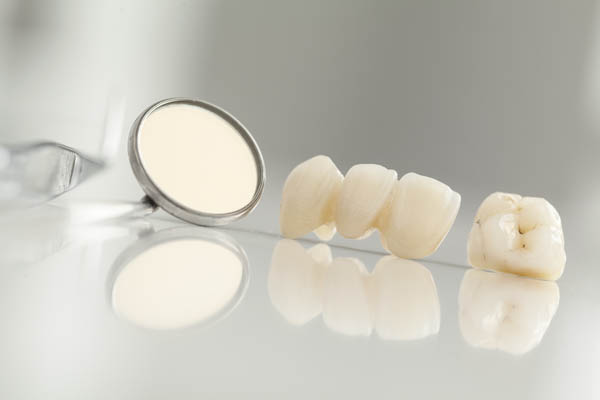Who Should Consider Getting Dental Crowns?

If you are dealing with a damaged tooth, dental crowns may be a viable solution. These tooth coverings help restore a damaged tooth for a functional and healthy smile. While a crown is one of the most common types of dental work, it still may not be for everyone. It can only be used to treat specific issues in patients who are good candidates for the treatment.
What issues can be treated with dental crowns?
Many dental issues can be effectively repaired with a crown. These can include:
- Chips
- Cracks
- Severe dental decay
- Weakened teeth
- Large fillings that make teeth susceptible to more damage
- Undersized or irregularly shaped teeth
In these situations, the dentist will treat any decay or infection and then prepare the tooth by grinding it down to a smaller size. Impressions or digital images will be taken and a crown will be milled, usually from porcelain or ceramic, although metal may be used as a reinforcement material. The crown is then cemented in place and creates a natural-looking finished product that can last up to 15 years with good oral hygiene and care.
What are the requirements for dental crowns?
In general, dental crowns are a practical choice for most patients. However, some situations may require a different approach. You will likely need to meet these requirements in order to get a dental crown.
Decent oral health
Patients who need dental crowns should have a mouth that is healthy enough to support this type of dental work. If several adjacent teeth are also severely damaged by significant decay or gum disease, crowns may not be the ideal treatment choice, especially if further damage is expected. Chronic dental disease can also prompt a dentist to recommend other alternatives instead.
A healthy, intact tooth root
Dental crowns are caps that are placed on an existing natural tooth. A healthy root is required to support the covering. Therefore, they cannot be used to replace a knocked-out tooth. If the decay or damage is so severe that the root is no longer healthy, a dental crown will likely be out of the question, especially if an extraction is needed.
Proper location in the mouth
In general, crowns are only used on teeth towards the back of the mouth. They are most commonly used to repair and restore molars. Teeth towards the front of the mouth will require an alternative type of treatment.
Other factors to consider
Patients who wish to get a dental crown should have all other potential dental work completed first. This includes the treatment of cavities, infections, or gum disease. Also, patients who habitually clench and grind their teeth are more likely to damage dental crowns. A dentist may need to begin treatment for these issues first to ensure the crown lasts longer.
Conclusion
There are many ways to repair a damaged tooth, but dental crowns are one of the most commonly used options. However, this type of treatment only applies to certain situations. If you are dealing with a damaged tooth, a dentist can help you make the right treatment plan to restore your smile.
Request an appointment here: https://cohensgentledental.com or call Cohen's Gentle Dental at (718) 412-9440 for an appointment in our The Bronx office.
Check out what others are saying about our dental services on Yelp: Dental Crowns in The Bronx, NY.
Related Posts
If you have ever had a dental crown placed, you know that the process often involves multiple visits and temporary crowns. A CEREC dentist offers a faster solution to the typical dental crown process. Using advanced technology, these dentists create durable, high-quality crowns in just one appointment.A CEREC dentist uses Computer-Aided Design and Manufacturing (CAD/CAM)…
CEREC® crowns are gaining popularity. Even so, there is only a limited number of clinics adopting the CEREC technology. Those who find dental facilities with this system are now enjoying the advantages of these crowns. If you want to find out more about the availability and popularity of CEREC crowns, here are the details.Traditional crowns…
Dental bridges are an effective and popular way to restore missing teeth, offering cosmetic and functional benefits. When you properly care for and maintain your bridge, it can significantly improve oral health and restore the confidence you have in your smile. However, several factors can influence the longevity of dental bridges.Dental bridges are prosthetic devices…
A dental bridge is a valuable solution for individuals with missing teeth, providing functional and aesthetic benefits. If you are considering dental bridges to restore your smile, you will need to determine whether you are a suitable candidate for this treatment.Let us discuss the factors that determine whether a patient is a suitable candidate for…
